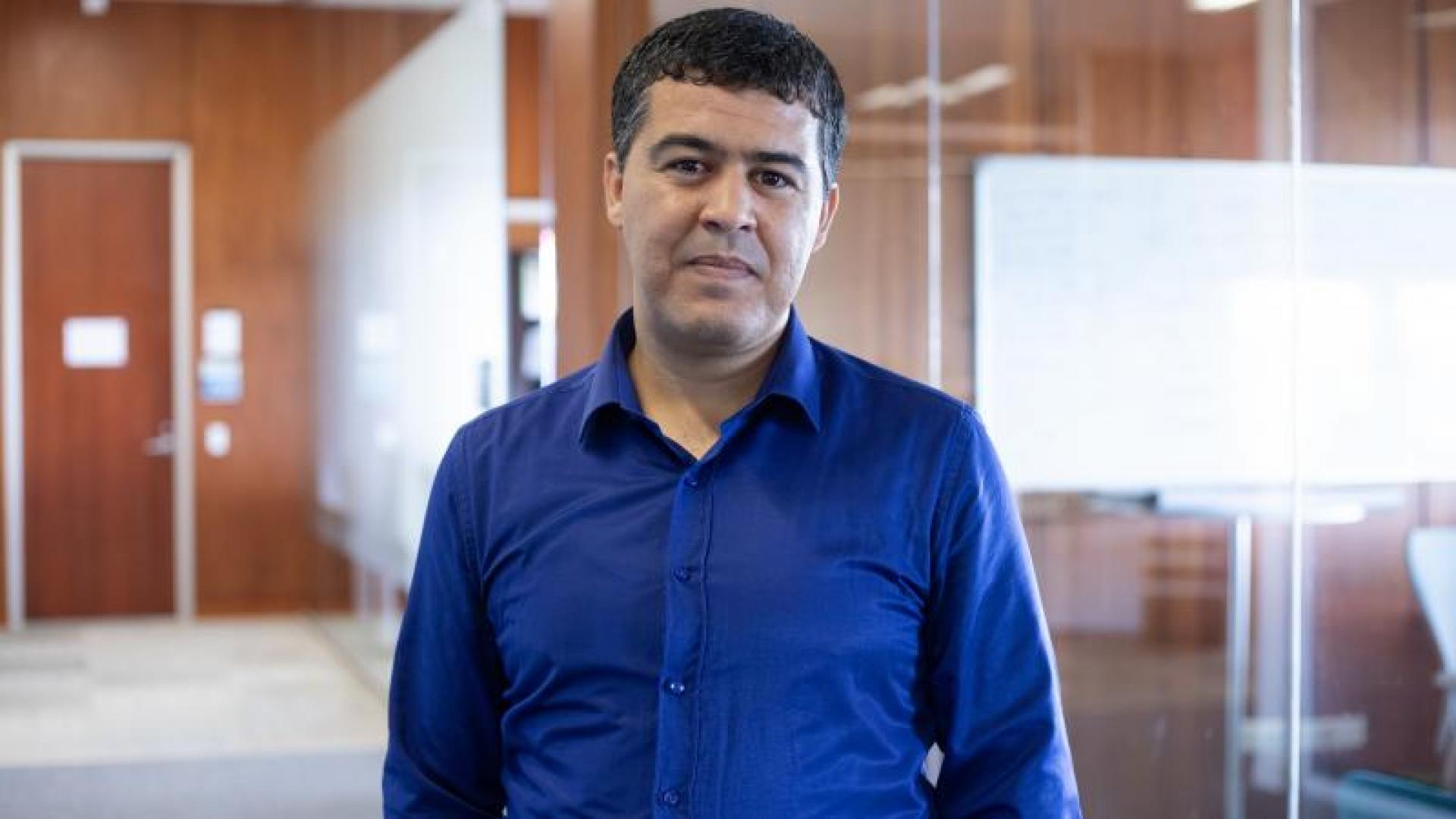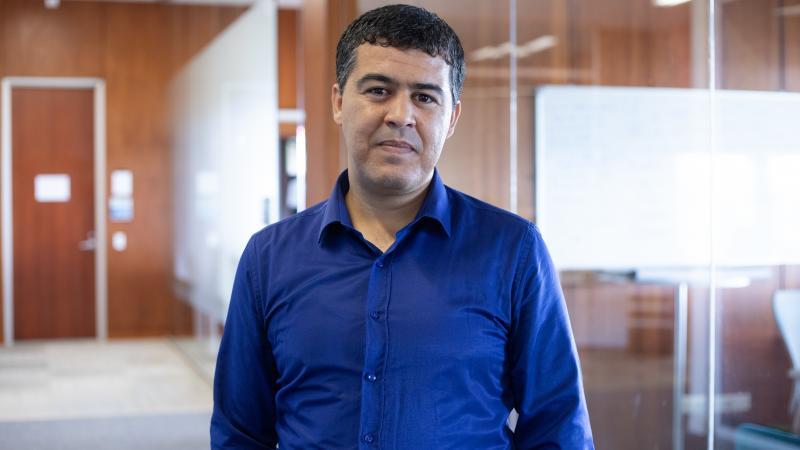By David Murphy
Dr. Fouzi Harrou, a research scientist in the KAUST Environmental Statistics (ES) group, recently received two IEEE Eurasia Conference on Biomedical Engineering, Healthcare and Sustainability 2021 (IEEE ECBIOS 2021) best paper awards.
Harrou believes that two IEEE ECBIOS 2021 best paper awards will bolster the ES group’s goal to develop further outstanding technical contributions aimed at solving practical, real-world problems regarding environmental, renewable energy systems.
“We want to create solutions that benefit many industries in Saudi Arabia and abroad,” he noted. “This recognition highlights the importance of the research line we are working on, and I would like to thank Professor Ying Sun for her great and continuous support and excellent guidance. I am grateful for the excellent resources provided by KAUST, which creates an ideal environment for conducting research.”
Award-winning research
The first IEEE ECBIOS 2021-winning paper proposes an improved hybrid deep learning-based concentration forecasting approach for dust or particulate matter (PM2.5). Particulate matter, also called particle pollution, has been linked to many respiratory problems worldwide, including persistent coughing, aggravated asthma, difficulty breathing and airway irritation.
The approach outlined in the paper introduces an improved variational autoencoder (VAE) model, which incorporates a bidirectional gated recurrent unit (BiGRU) at the encoder side of the model. For this study, carried out in collaboration with Dr. Abdelkader Dairi from the University of Science and Technology of Oran-Mohamed Boudiaf (USTO-MB), Algeria, PM2.5 datasets gathered from several weather stations in Spain were used to confirm the accuracy of the improved VAE model.
“Results from the study confirm the accuracy for PM2.5 concentration forecasting over the traditional deep learning models, including VAE, Long Short-Term Memory (LSTM), GRU, bidirectional LSTM and BiGRU,” Harrou noted.
The second winning paper focuses on Supervisory Control and Data Acquisition (SCADA) industrial control systems. These SCADA systems are broadly adopted in remote monitoring large-scale production systems and modern power grids. However, they are also continuously exposed to various heterogeneous cyberattacks, making detection tasks using conventional intrusion detection systems (IDSs) highly challenging for system operators.
“Accurately detecting cyber-attacks in critical SCADA systems is undoubtedly indispensable to enhance their resilience, ensure safe operations and avoid costly maintenance. The overarching goal of our paper was to detect malicious intrusions that already bypassed traditional IDS and firewalls,” he explained.
At the leading edge of statistical process monitoring and anomaly detection
With 15 years of experience in statistical process monitoring and anomaly detection, Harrou’s current research interests focus on statistical decision theory and its applications, multivariate statistical process monitoring, anomaly detection and diagnosis. The developed theoretical approaches stemming from his KAUST research activities are applied to monitor a wide range of natural processes.
“These approaches include wastewater treatment, renewable energy systems, air quality monitoring, healthcare systems, chemical and petrochemical processes, and cybersecurity.
“Recently, we developed some efficient data-driven deep learning models to accurately forecast COVID-19’s spread. We are also currently working on developing deep learning-based methods to detect COVID infection from routine blood exams. In the future, I will focus more on the application of the developed anomaly detection and monitoring methods in medical applications, such as early detection of Parkinson's disease and heart disease prediction,” Harrou concluded.

